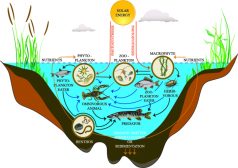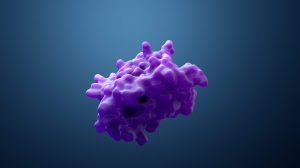Definition
noun, plural: pituicytes
A specialized glial cell in the neurohypophysis that resembles an astrocyte and plays a role in the storage and in the secretion of neurohypophysial hormones
Supplement
A pituicyte refers to any of the glial cells of the posterior pituitary characterized by having long branching processes and resembling astrocyte (another glial cell). Both the pituicyte and the astrocyte possess intermediate filaments made up of glial fibrillary acidic protein in their cytoplasm.
The posterior pituitary (also referred to as neurohypophysis) is the part of the pituitary gland that is non-glandular and an extension of the hypothalamus as opposed to the anterior pituitary (also called adenohypophysis) that is glandular and comprised of various hormone-secreting cells such as somatotrophs, corticotrophs, thyrotrophs, gonadotrophs, and lactotrophs. The posterior pituitary releases hormones, nonetheless. However, the hormones (e.g. vasopressin and oxytocin) are synthesized in the hypothalamus. Pituicytes, in particular, are specialized glial cells that aid in the storage and in the release of the neurohypophysial hormones from the posterior pituitary.
The pituicytes, together with the Herring bodies, make up the pars nervosa of the posterior pituitary. The pars nervosa forms the bulk of the posterior pituitary and serves as the storage site for oxytocin and vasopressin. In the pars nervosa, the pituicytes are interspersed with unmyelinated axons and Herring bodies.
See also:
- posterior pituitary
- pituitary gland
- hypothalamus
- Herring bodies
- pituicytoma
- Pitocin
- Pitressin







